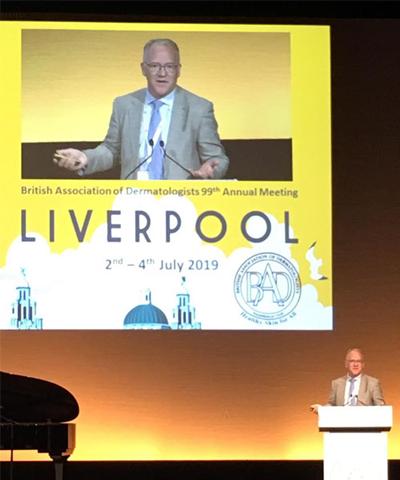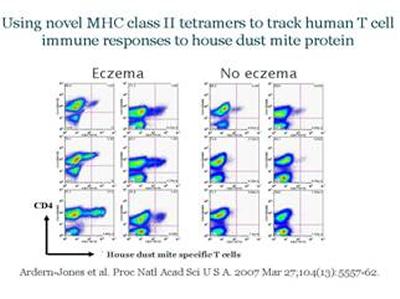Dr Michael Ardern-Jones BSc, MBBS, DPhil, FRCP
Associate Professor of Dermatology, Consultant Dermatologist

Michael Ardern-Jones is a leader in UK dermatology. He is an internationally recognised expert on inflammation in the skin with a particular focus on atopic dermatitis and drug hypersensitivity reactions.
Michael Ardern-Jones is a leader in UK dermatology. He is an internationally recognised expert on inflammation in the skin with a particular focus on atopic dermatitis and drug hypersensitivity reactions.
Michael Ardern-Jones (MAJ) trained in Dermatology at St John’s Institute of Dermatology, London and Churchill Hospital, Oxford. His DPhil (PhD) at Christ Church, Oxford explored the immunology of atopic dermatitis. He was appointed to University Hospitals Southampton NHS Trust and to the Faculty of Medicine, University of Southampton in 2007.
He has a specific academic interest in inflammatory skin disease and leads the clinical service for eczema, and drug hypersensitivity reactions. His clinical unit undertakes clinical trials in atopic eczema and other skin diseases. MAJ has long-standing research interest in all aspects of atopic eczema including immunological mechanisms, immunotherapy, and the skin microbiome. His research lab comprises post-doctoral scientists, PhD students, clinical fellows and technicians.
Michael Ardern-Jones previously served as President of the British Society for Medical Dermatology and Chair of the British Society for Investigative Dermatology. He also chairs The Skin Investigation Society. He is lead author on the Atopic eczema chapters and co-author for Drug allergy in Rook’s Textbook of Dermatology. He is an expert advisor to NICE and the MHRA on dermatology.
Qualifications
B.Sc, Biochemistry, University of London, 1993
MB.BS, Medicine and Surgery, University of London, 1996
MRCP, Royal College of Physicians, 1999
DPhil, University of Oxford, 2007
Work history
Associate Professor in Dermatology / Honorary Consultant, University of Southampton, 2014 - onwards
Senior Lecturer in Dermatology / Honorary Consultant University of Southampton, 2007-14
Wellcome Trust Research Training Fellow /Senior Clinical RTF, University of Oxford, 2004-07
Specialist Registrar Dermatology, Oxford deanery, 1999-2004
